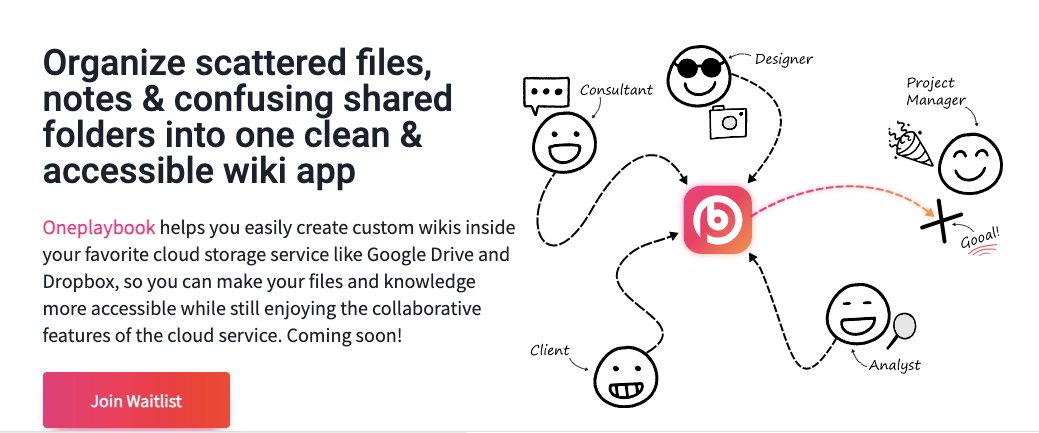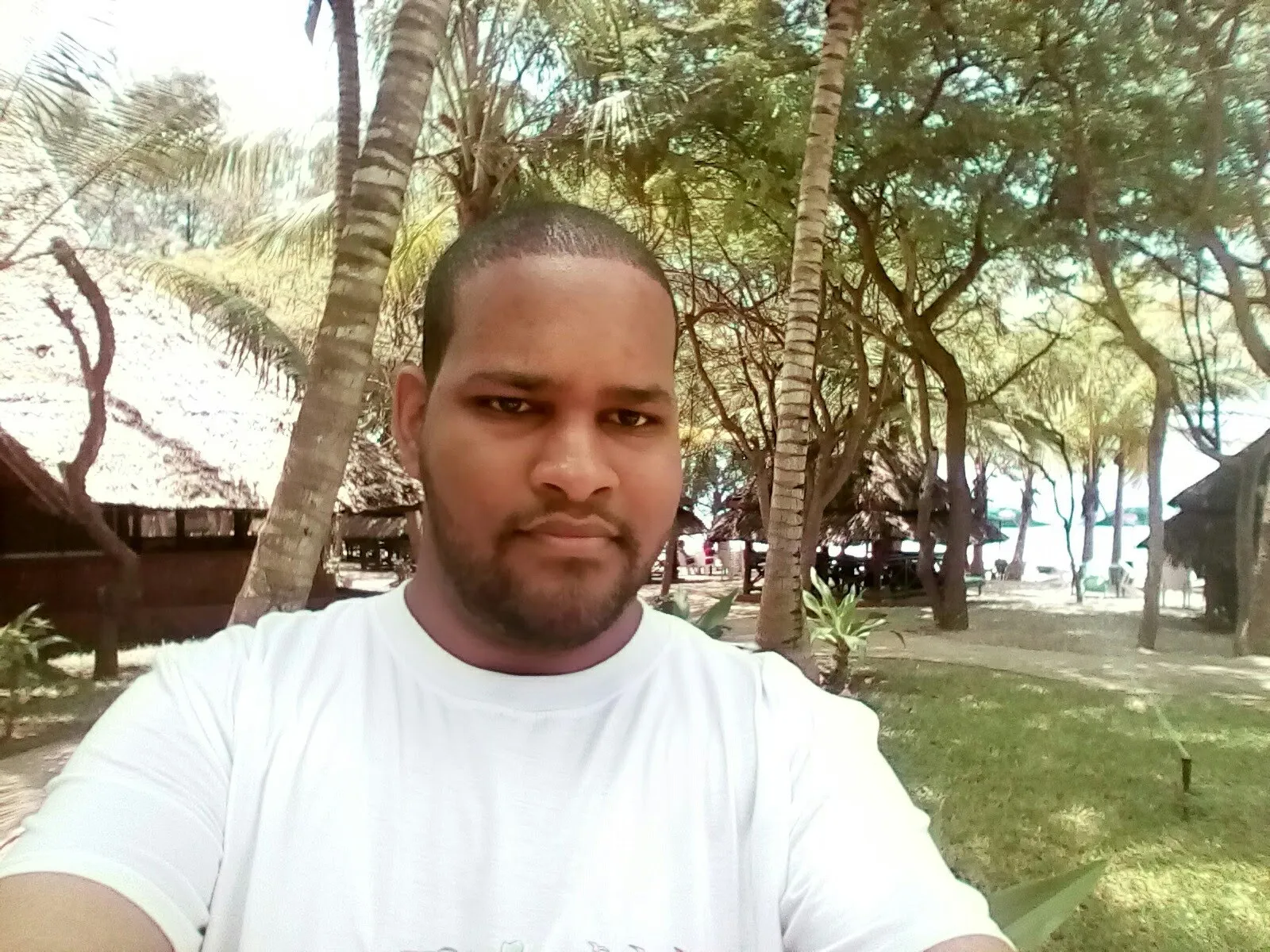The Fission team has had the pleasure of getting to know medical doctor and developer Abraham Samma. Abraham is based in Dar Es Salaam, Tanzania, where he practices medicine and develops software. His latest project is called Oneplaybook, and is built on TiddlyWiki.
We talked with Abraham about his work, digital note taking apps, TiddlyWiki, Oneplaybook and his thoughts about the future of all things privacy and security.
Q. When did you first Discover TiddlyWiki?
A. I discovered TiddlyWiki around 2016. I was looking around the web at the time for inspiration for my next web side project. I wanted to try to create a knowledge management system because, as a doctor and philomath, my primary concern was building and maintaining an organized personal knowledge base for the many things I learned over the years. However, I didn’t want to simply use someone else’s app.
Q. What is TiddyWiki in your own words?
A. Describing TiddlyWiki has become something of a mental exercise when introducing it to people outside of the TiddlyWiki community. It’s pretty hard because it is more than just another wiki application. For beginners, the succinct description of a “non-linear notetaking app” is usually sufficient to get them interested enough to have a look and try it out for themselves. The idea of creating free flowing linked thoughts is appealing because in many ways, that is how our minds usually work. We tend to meander in our thoughts, and at our own pace. It’s refreshing for many of us who can’t bear to fill diaries on a regular basis!
However, the moment beginners start to use TiddlyWiki and experience the many incredible features it has to offer like transclusion, metaprogramming and the ability to reproduce its own source code (making it a quine) and allowing it to save itself as a self-contained, decentralized single HTML file, they usually almost always experience a profound “aha” moment. All of these features aren’t really captured by the non-linear notebook description well enough. So I’d prefer calling it ‘a metaprogramable environment for your thoughts and knowledge’. Another apt high-level description I like to use is ‘like Excel, but in notebook form.’
Q. What do you use TiddlyWiki for personally?
A. I try to organize my life with TiddlyWiki as much as possible. I use it for brainstorming, creating shopping lists, noting down ideas, even saving web articles for offline saving that are too important to me to be put into another web article saving tool.
In some cases, I use TiddlyWiki’s built-in building blocks to create my own solutions. Other times I use a solution crafted by other TiddlyWiki users. I do all this not only for my own utility, but also to explore new ideas for plugins to fill in certain need gaps that may exist in TiddlyWiki.
I’m heavily invested in my notebook. So much so that it has become a living portrait of my life. I am sure advertisements networks would kill to have this kind of rich information about a single person. But they never will, and that’s the beauty of it! It’s all yours and no one else’s. Oh, it even has a built-in tool to encrypt your notes so there’s that!
Q. What have you built with TiddlyWiki?
A. I’ve built a number of plugins, including a Lean canvas manager that I’d like to revamp in the near future. I also created Maarfapad dot com which is a free community cloud service for hosting personal wikis. Now I am busy with the upcoming OnePlaybook dot app service which will give users the ability to create and use wikis inside their preferred cloud service, like Google Drive or Dropbox. You could also deploy it onto a private server and use it completely offline.

It’s been a work in progress since sometime last year. I came up with the basic concept in February and I’ve been refining the idea with a colleague of mine who is a software engineer.
We are testing it and seeing we can address some pain points for our future users. We’re staying customer focused on our side of things because we really want this thing to succeed. The pandemic is showing us different pain points that can be met with our product and with TiddlyWiki. For instance, Oneplaybook allows teams working remotely to work together asynchronously or in real time in a free and secure workspace.
People need to be empowered with their own agency and sovereignty again with these tools
Q. What are your favorite TiddlyWiki plugins?
A. Let me break it down into a list:
- For UI, I love the work that JD mobile is doing. I use his Whitespaces plugin that configures TiddlyWiki into a mobile friendly experience among other things.
- Mohammed’s Kookma Todo list plugin is a very compact micro-app todo list maker for your wiki. Highly recommended
- Noteself is an awesome edition of TiddlyWiki that creates a self-hosted wikis with your data being stored inside your browser. You can also sync it to a CouchDB server that you own
- Projectify is a beautiful edition of TiddlyWiki reimagined as a project management tool with direct inspiration taken from basecamp by its author. Very nice that one.
- Krystal plugin turns your wiki into Andy Matuschak’s notebook. If you don’t understand, Google this guy’s notes. It’s mind-blowing and he’s awesome!
There are many more than I could go on about, but these are my absolute favorites. There is also a plugin that turns TiddlyWiki into a Roam Research lookalike called Stroll. This is a testament to the inventiveness of open source communities like ours. You never know what you might find tomorrow.
Q. What’s one thing that you wish TiddlyWiki did?
A. In terms of features, there’s not much it can’t do that’s essential. You can always create a plugin or macro to satisfy your needs. And more will come along, especially as the core developers work to make API easier to understand and work with in upcoming versions. More integrations with other external services for things like sharing and publishing would also be nice. But what I would like is more traction. And that’s somewhat more difficult to attain.
Although TiddlyWiki is already very popular as an open source software, with more than 5k stars on Github, it is still relatively unknown to many it’s meant to help. Its main ‘competitor’ in this space is Roam Research which tends to steal the show among academics, which is ok--we all have different tastes, but I feel people are missing out a lot. Particularly in terms of robustness; TiddlyWiki works fine no matter the browser you use or the state of your internet connection. You can’t say the same about most proprietary software-as-a-service apps.
And when it comes to knowledge management, you want that kind of robustness and versatility. TiddlyWiki is so much older than other similar apps today (more than seven years old now) and it has stayed very stable throughout that time. Backwards compatibility is keystone in the community. A TiddlyWIki from 2014 will work just as well and will be mostly compatible with a version from 2021. That kind of robustness is gold in an age of planned obsolescence and ‘move fast, break things’.
Q. What excites you about Fission and TiddlyWiki teaming up?
A. Whenever there is a new service integration for TiddlyWiki, there’s more to look forward to in terms of possibilities and opportunities. Hooking up TiddlyWiki to Fission allows for all kinds of interesting things IMO, such as web publishing, site creation, SaaS creation (difficult if you don’t employ a MERN or LAMP stack), things that might require domain experts or teams might now be possible for ordinary people from other fields of expertise to do.
The web should be open for creators from all walks of life, not just IT ninjas. I see this partnership as a step towards enabling that vision even more. We can imagine people learning only basic web skills creating B2B web services built with TiddlyWiki and hosted on decentralized infrastructure and improving their livelihood. It may feel like a stretch, but we must remember that all of the web today was once seen as a stretch too. It’s up to all of us to make it more mundane!
Q. What interests you about the future of web technology?
A. I’m really interested in decentralized web technologies--these are really good things and we need them more than ever. Last year we as a nation actually experienced for the first time some form of censorship during our elections. It was really unnerving for a lot of us. We couldn’t access Twitter...and evidence emerged online that Twitter was being locked on every level imaginable. They were blocking it wherever they could find it.
In fact, VPN became a meme of sorts because Tanzania was introduced to such a thing after this incident. It was really disorienting for people to need to think about this sort of thing. Some people even thought VPN was a magical potion to drink in order to access the internet.
The situation got me thinking about how vulnerable we are. Something needs to change on a fundamental level. We need to think about how we create stuff on the web and how we can be better protected.
This is a wakeup call of all of us over here. But, at least there is encouraging progress being made toward creating a lot of decentralized protocols. I hear that Mozilla and maybe Brave have taken up some of these protocols. So who knows? The future is bright. It’s encouraging.
We here at Fission agree with Abraham--the future definitely looks bright! Especially with brilliant minds like Abraham's
If you’d like to be notified when Oneplaybook is ready, sign up for the waiting list at oneplaybook.app. You can find Abraham on Twitter at @ABSamma.
